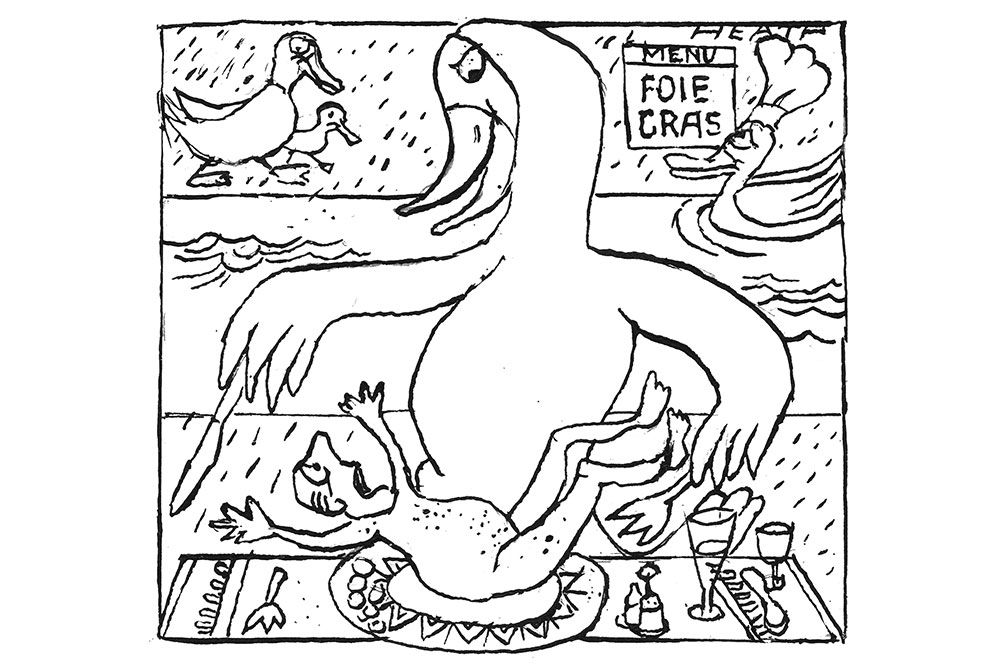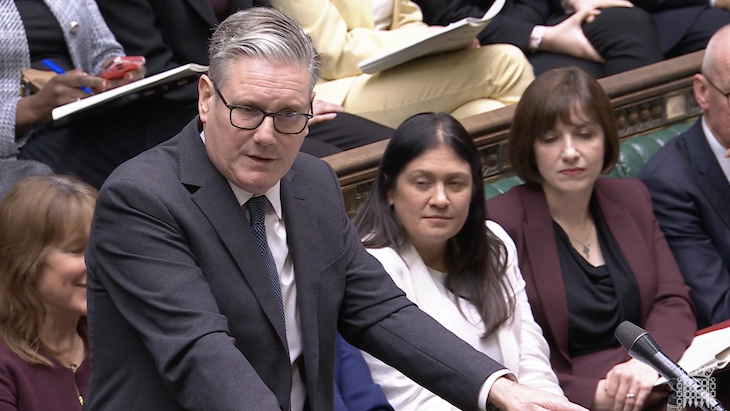It was never very impressed by the opportunity to strike trade deals across the fast-growing Pacific. It didn’t much like the idea of deregulating the tech industry. Nor did it think much of diverging on financial standards to re-boot the City. The Labour party may have accepted our departure from the European Union, but it never found any ‘Brexit freedoms’ it actually liked. Until today that is. The party has just worked out we can be kinder to geese – and, slightly surprisingly, in doing so, it may have just closed the door on the UK ever rejoining the EU.
As it prepares for government, the Labour leader Sir Keir Starmer has been getting rid of policy commitments as fast as he possibly can. The green energy plan has been watered down, tax rises have been ruled out, and worker’s rights have been kicked into touch. But in case anyone thought its radicalism was dead, there is this: Labour has now pledged to ban the sale of foie gras, on the perfectly reasonable grounds that the production of the pâté is cruel to the animals involved.
Of course, it is possible that the main objection to foie gras is that it is generally eaten by rich people. It is rarely served in the working men’s clubs of Barnsley and Hull; even in Islington, it is not often found on the menu of hipster cafes next to the smashed avocado. Indeed, it is not hard to imagine Nigel Farage snacking on some foie gras on toast, along with a glass of claret, as he takes a break from campaigning in Clacton. Even so, it may well be the right decision. It is clearly a terrible way to treat animals.
There is just one problem. The UK is only allowed to ban the sale of foie gras because we have left the EU, and have taken back control of food standards. The EU has a ‘principle of mutual recognition’. Put simply, this ensures that a product which is legal to sell in one EU member state must be legal to sell in every other member state. Now that the UK is out of the EU, this doesn’t apply in the same way.
But while animal rights activists will be celebrating, it’s worth pausing to consider whether Labour realises the repercussions of this policy. First, by banning foie gras, it may well have widened the gulf between Britain and the EU. It is impossible to imagine a French president agreeing to any special deals with Britain that specifically discriminated against one of the country’s most iconic foods.
Second, it is possible that for all the catastrophising, the Labour party has finally worked out that there are some benefits to Brexit after all. Who knows, perhaps it will start looking at a few slightly more important ones as well.







Comments